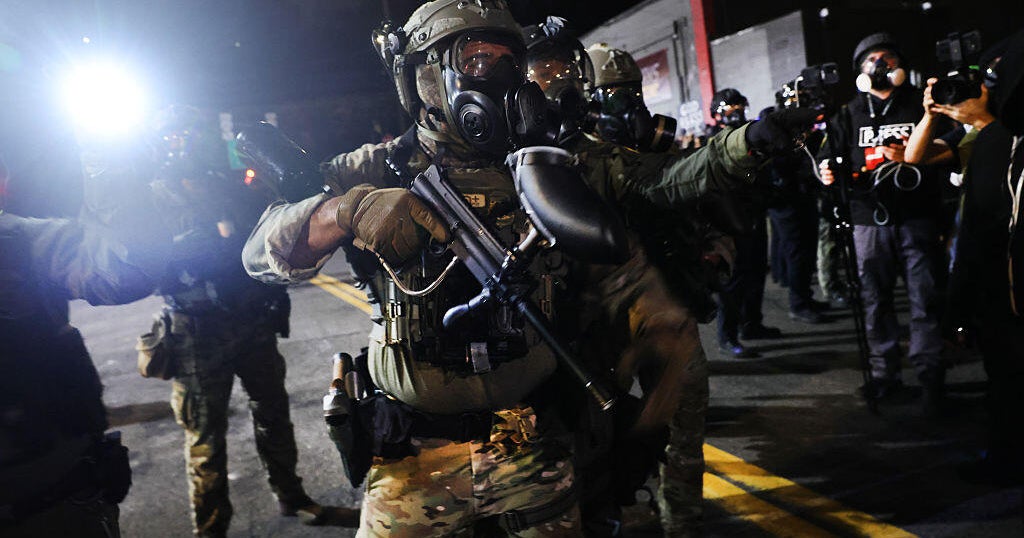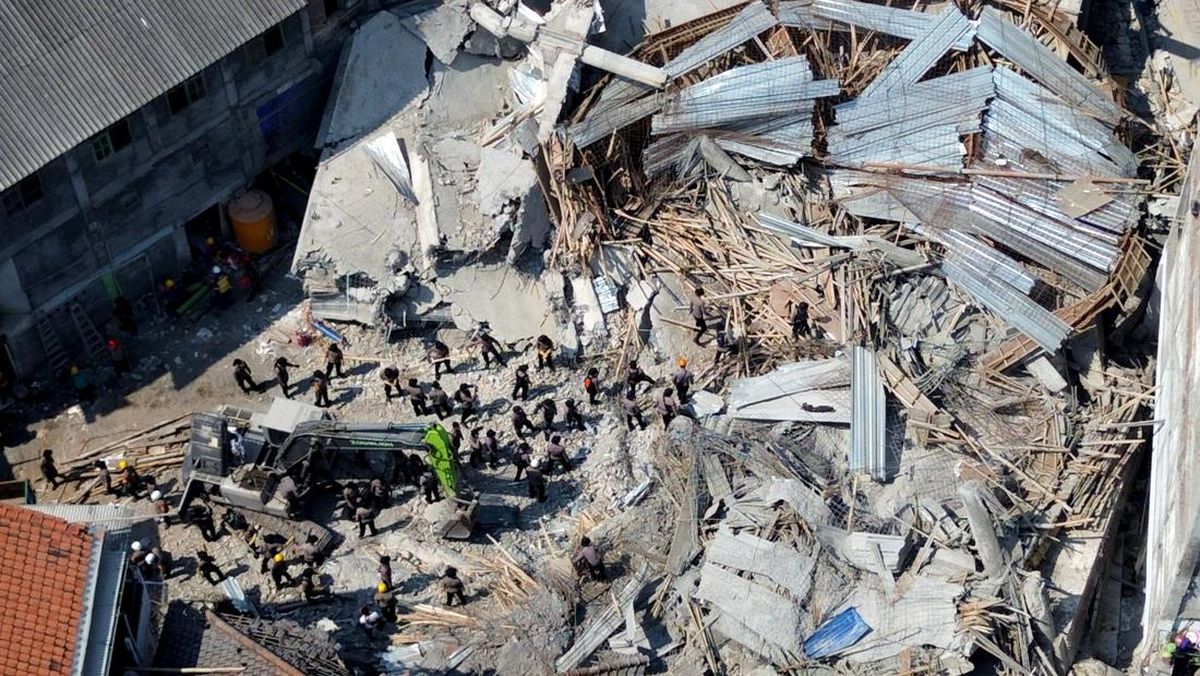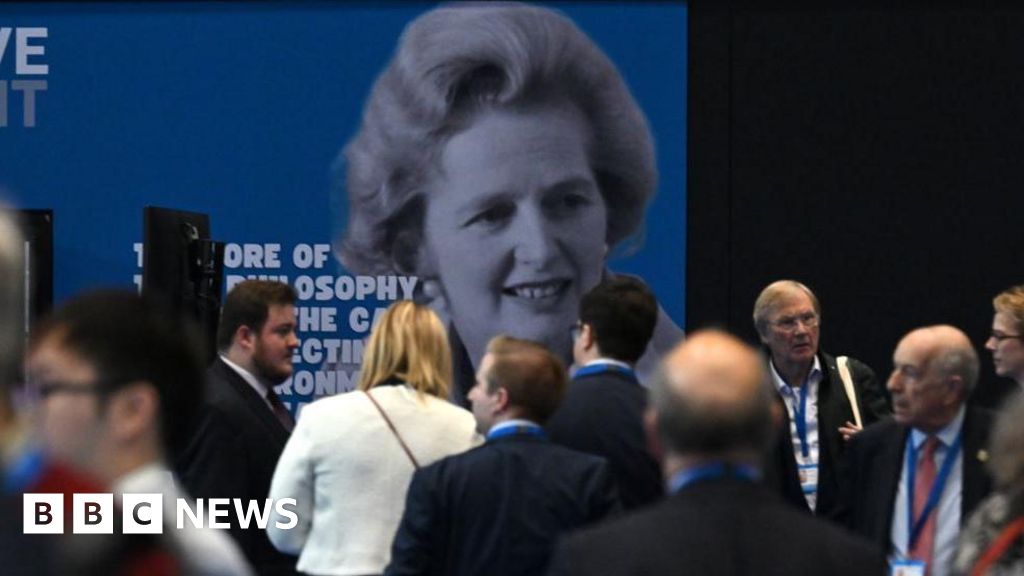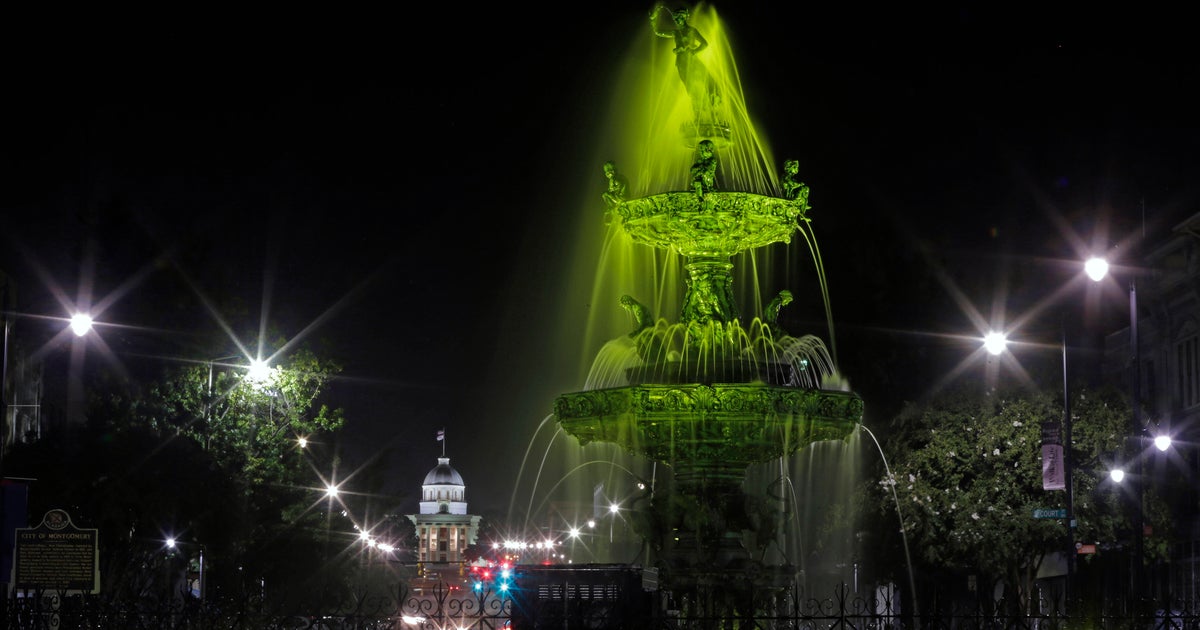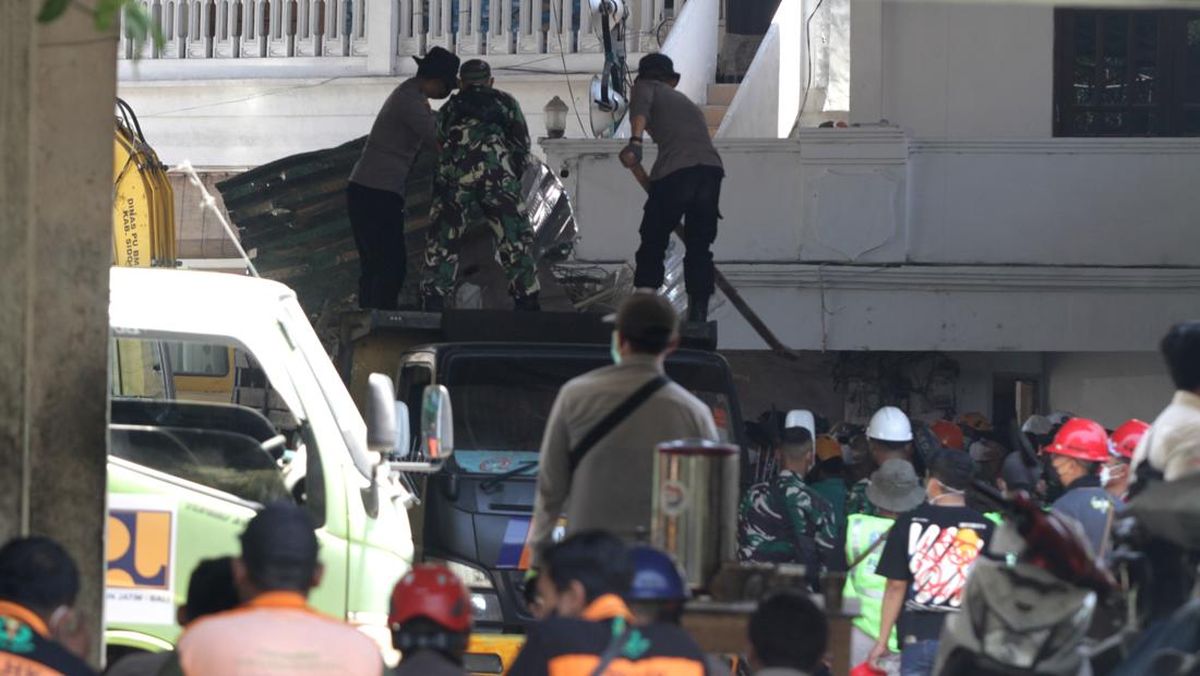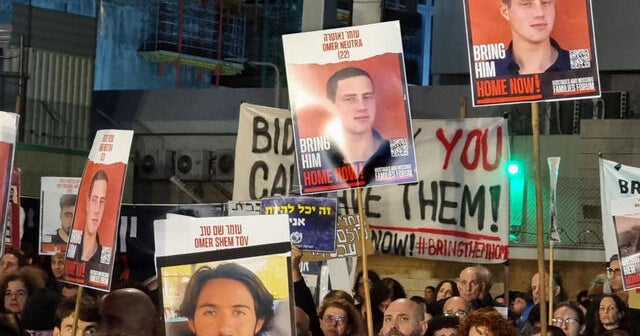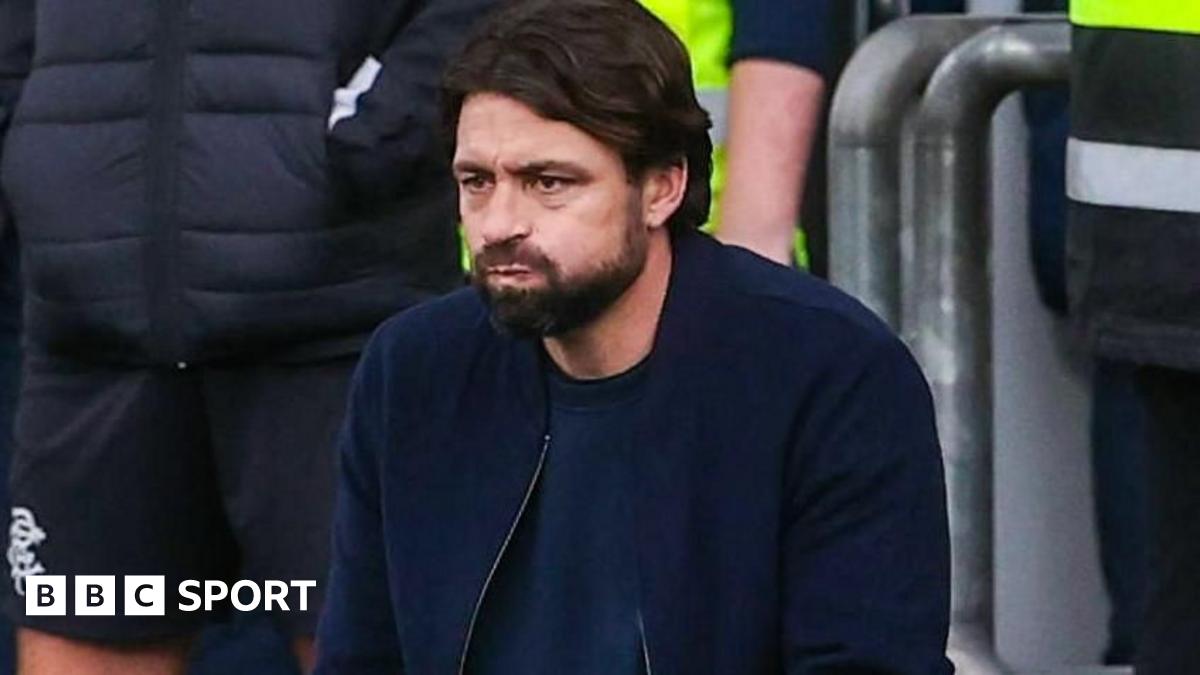Encountering ICE: A "David vs. Goliath" moment
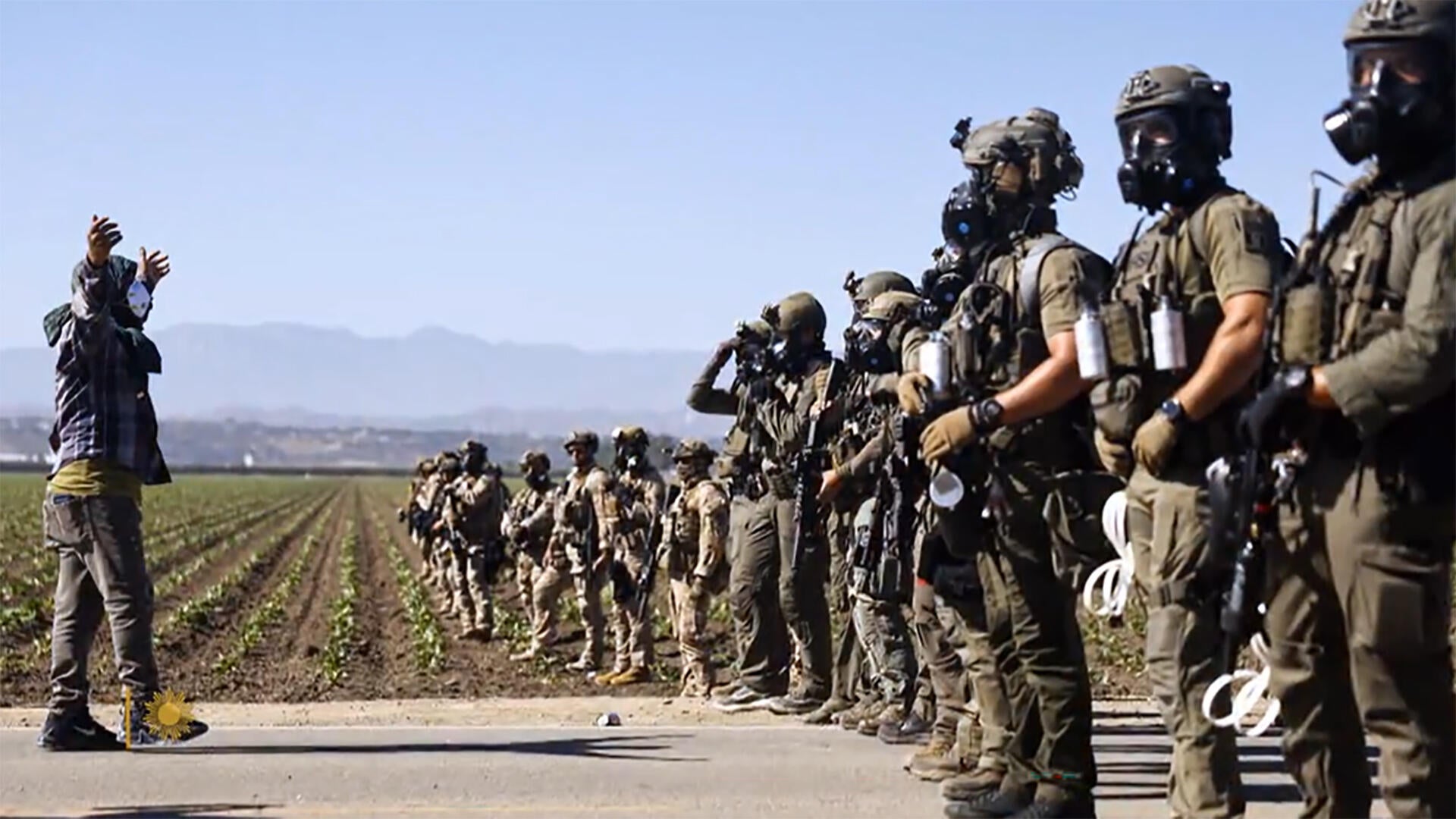
It's 11:00 a.m. on a Sunday in the heart of Hollywood, and the service at St. Stephen's Episcopal Church is just getting underway. It was worship via the web. The church itself was empty, just like during the pandemic, when parishioners feared catching COVID. Today it was empty because they fear being caught themselves.
On June 6, agents from Immigration and Customs Enforcement descended on Ambiance Apparel, a clothing wholesaler in L.A.'s Fashion District. The pastor of St. Stephen's, Father Jaime Edwards Acton, whose congregation is about 80% Hispanic, got a frantic call: "She said, 'They got 'em.' At first, I had no idea what she was talking about because I was not thinking about it," Acton said. "Even with all the threats and the bravado and stuff, I was not thinking that it would happen directly to us."
Thirteen members of his congregation were arrested that day. The Trump Administration no longer considers schools, hospitals and churches to be "protected sensitive locations" anymore. So, the following Sunday, Acton told his faithful to stay away.
He says the decision to close the church was not made lightly: "No, not at all, but I was trying to balance, could we do church in person knowing that a good portion of our community was too afraid to leave their homes? It wasn't even people that were undocumented. I have longtime parishioners that I know for sure are citizens and have been for a while that were afraid to leave. They were afraid to leave their homes."
In Los Angeles, that fear turned to anger, and anger into violence. The raids were challenged in court for being indiscriminate and based on skin color, but ultimately the U.S. Supreme Court ruled the raids could continue.
Since then, in city after city, the administration has been testing the court's limits, especially in Chicago. Illinois Governor J.B. Pritzker said this past week, "ICE is running around the Loop harassing people for not being White. Just a year ago, that was illegal in the United States. Now ICE is making it commonplace."
Pritzker said Saturday the Trump administration intends to federalize 300 members of the Illinois National Guard. Pritzker said Mr. Trump gave him an ultimatum: "Call up your troops, or we will."
Department of Homeland Security Secretary Kristi Noem has long defended the ICE raids as only going after the "worst of the worst."
"Nobody is getting swept up," Noem said on August 8. "We're running targeted enforcement operations across the country."
But as those operations increased, so have assaults on federal agents: a sniper attack on an ICE facility in Dallas; an ambush in Alvarado, Texas; a violent scuffle in San Francisco.
And then there is Portland. Protests around the ICE headquarters there have sparked particular ire from President Donald Trump, who directed federal troops to be sent to what White House press secretary Karoline Leavitt called a "war-ravaged city." [On Saturday a federal judge temporarily blocked the Trump administration's deployment of the National Guard to Portland.]
In fact, this past week, while addressing top military brass, the president suggested American cities could serve as "training grounds" for U.S. combat troops. "It seems that the ones that are run by the radical left Democrats, what they've done to San Francisco, Chicago, New York, Los Angeles, they're very unsafe places," Mr. Trump said. "And we're gonna straighten 'em out one by one. And this is gonna be a major part for some of the people in this room."
"This doesn't feel like protecting the homeland anymore"
That idea has some military commanders uneasy, and even civilians within ICE itself are finding themselves conflicted.
As part of ICE's legal department, attorney Adam Boyd provided guidance related to how ICE officers performed their enforcement duties. "I saw this push to find how can we accomplish the goal with anything that seems legal enough," he said. "We're lumping people with no criminal history who have been here for a very long time with the 'worst of the worst.'
"There's no question we have threats in our country," Boyd said. "That's why the State Department and Homeland Security and the FBI and all these agencies work together to keep people safe. This doesn't feel like protecting the homeland anymore. It feels like we're just hitting numbers and goals."
Take the case of 20-year-old Dylan Contreras, who came into the U.S. from Venezuela under a Biden-era mobile app. Back in April, though, DHS began revoking the legal status of many of those who used that app to apply for asylum.
While his case was pending, Contreras had been attending high school in the Bronx learning English, and working as a delivery driver, in order to get his mom, Raiza, and his two younger siblings – Helen, 10 and Caleb, 7 – out of a shelter.
Last May, Contreras did what he was required to: he showed up for his court hearing in New York. His mother said they assumed it was just another routine hearing in the process. "Yes, I didn't think anything bad would happen," she said through an interpreter. "He wanted to enter legally; he didn't want to get into trouble. He did it the right way."
As they left the courtroom, however, his mother says federal agents followed them into the elevator. "Like, five people or something came at me and grabbed me, pushed me to the floor," she said. "My son screamed, and they grabbed him, too, and put handcuffs on him."
Contreras did not have a criminal record. "Not at all, not at all," his mother said. "Those who know him, know."
His case for asylum was denied last month. Pending an appeal, Contreras will be deported, leaving his mother and his two young siblings behind. Raiza said she was "Devastated, devastated, because I've always been with my children, and he's been my partner. He's always been more than a son, a friend, everything."
The most recent ICE data shows those with no criminal record, like Contreras, now make up the bulk of those being arrested and detained.
The Department of Homeland Security, however, is quick to list the violent offenders who have been captured, and there are many.
As for Adam Boyd? Back in May he resigned his position at ICE citing "unforeseen circumstances."
"It was a difficult decision," he said. "If you think something is wrong, then you have to recognize that."
He's now working for a firm in Philadelphia defending those arrested by ICE, which is no small task. After passage of the "One Big Beautiful Bill," ICE is now the highest-funded federal law enforcement agency in the federal government.
Fr. Jaimie Edwards Acton says the expansion of ICE should be seen as a warning: "I would tell everybody who thinks that this would never happen to them, that it could happen to them," he said. "And people need to be ready for it, and to think through the possible, you know, kind of responses to it."
For Acton, that response is no more hiding. For any immigrant, legal or otherwise, this is the new reality.
So, for those willing to come back, the St. Stephen's Episcopal Church is open again, with eyes out for ICE, while they pray for peace and understanding.
I asked Acton, "Does it feel a little like David versus Goliath, though?"
"Yeah," said Acton, "but, you know, David won that one!"
Story produced by Amol Mhatre and John Goodwin. Editor: Jason Schmidt.
Lee Cowan is an Emmy-award-winning journalist serving as a national correspondent and substitute anchor for "CBS News Sunday Morning."


